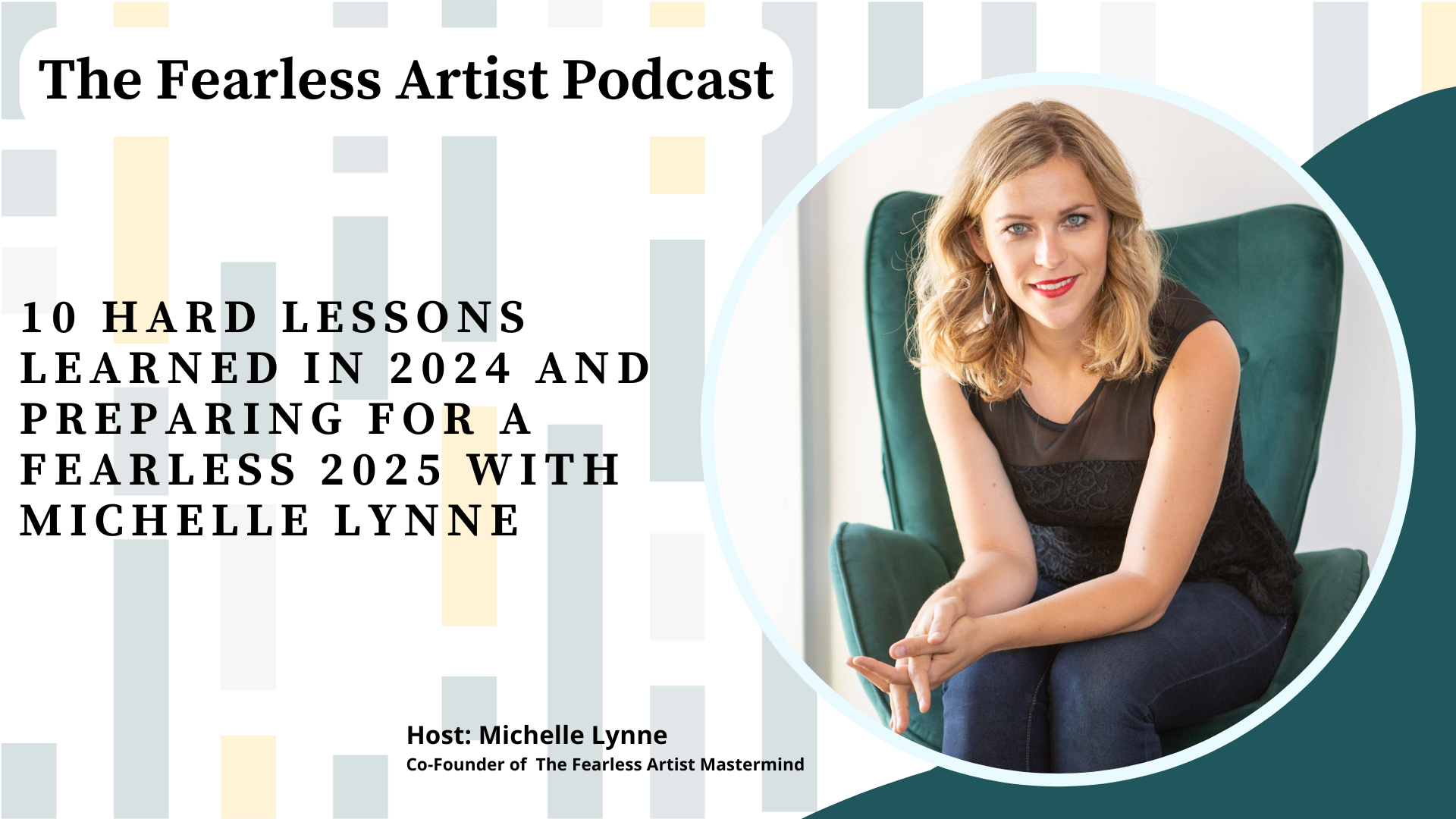10 Hard Lessons Learned in 2024 and preparing for a Fearless 2025 with Michelle Lynne
Episode 23

Subscribe to The Fearless Artist Podcast
Intro/Outro music by Michelle Lynne • Episode produced by phMediaStudio, LLC

Intro/Outro music by Michelle Lynne • Episode produced by phMediaStudio, LLC